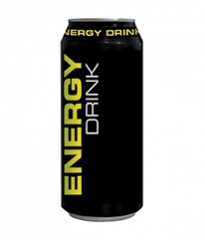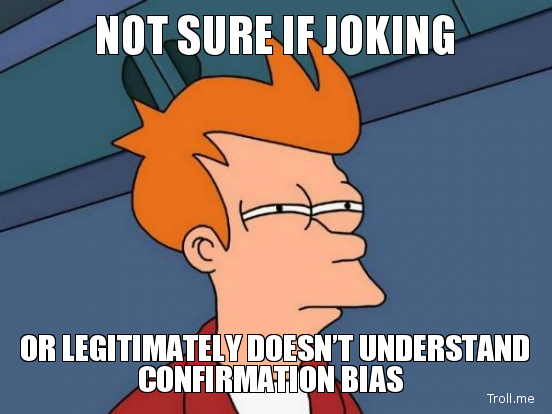Don’t you hate being taken advantage of?
You don’t have to look far in supermarkets to see scientifically dubious claims on product packaging. We already know about dubious health effects of certain foods and the arms race by advertisers to come up with fancy ways to pretend their products are good for us. Now the latest trend is to crow about how ‘natural’ a product is – the world natural, is however now officially anointed a weasel word.
What exactly does it mean? We all know what they want us to think: wholesome, pure, robust, healthy; but what does natural really mean?
As the provincial scientist, I will take a scientific view: natural originally meant ‘of nature’, that is to say, real, or not-supernatural. So technically humans are natural as is all we do. Of course, the term has now been somewhat perverted, and is commonly taken to mean: not man-made.
Any decent scientist is going to have trouble with this definition because it is far too open to interpretation and begs the question: how much human involvement is required to make something non-natural?
This is the vagueness has has been unconsciously used to create a definition that helps sell products: this definition suggests somewhat arbitrarily that ‘some’ degree of purification, or ‘some’ types of blend constitute something unnatural. In addition, if the substance is not found in nature at all it is considered even worse. Sometimes the product is cast as unnatural just for having a chemical sounding name, or because it’s produced by a drug company. On the other hand, some products are branded natural despite containing preservatives, colourants and so on. We simply cannot trust food marketing.
Modern diet sodas would meet most people’s definition of synthetic: but what about bread? Milk? Where do we draw the line?
One argument says if all the ingredients are natural, then the product is natural – so, for example, beer made without recourse to ‘chemicals’ may be considered natural.
Unfortunately, this argument simply displaces the vagueness: now the question is: what constitutes a ‘chemical’? We are all chemical, after all. So yet again, chemicals are arbitrarily divided into good and bad depending whether they occur in nature. Fruit flavoured sodas rarely contain actual fruit: we learned which chemicals were responsible for apple, strawberry and banana flavours and can now synthesize them perfectly – this is done in large quantities that make it far cheaper than actually farming the fruits themselves. It is fair to say that the supply chain for these flavours is often complex, so a little skepticism is warranted, but upon inspection, it turns out that most synthetic flavours are very well understood and are often far purer than the ‘natural’ alternatives. The idea that we eat barbecued meat, smoke tobacco and drink coffee, but are afraid of Acesulfame K is somewhat irrational.
So it leads us to ask – why? Why is the devil’s brew OK, and Acesulfame K not? Why is something man-made inferior to something natural? Why have we got it in for synthetic stuff?
In the study of ethics, there is an argument called the appeal to nature used to justify actions as moral: this is an argument that basically says natural=good.
However, there is no good reason to suppose this. I propose that this fallacy is behind our fears of the synthetic and is the driving force behind major societal trends such as the organic movement, and is a mainstay in the ongoing survival of many useless alternative medicines… so I thought it deserves to be unpacked a little.
The Moral Maze

Get this shirt, click the image!
It is worth reading up on the thought experiments done to try and understand morals. See for example the trolley problem: would you push someone in front of a train to save five lives? Or consider the scene in the last episode of M*A*S*H were a mother is given the choice to smother her own child to avoid a group of villagers from being detected by enemy soldiers.
By thinking through these scenarios, and unpicking our reactions, scientists have learned that different parts of us have different reactions – there are the more emotional reactions and the more logical, reasoned reactions. The logical reactions can seem immoral, and we would struggle with guilt if we made them, but why?
Emotions like fear, revulsion, guilt and love often seem illogical – and so they often are. They we not designed, but emerged as evolutionary advantageous, thus they often seem without purpose. Thus we can have emotions that do not make logical sense; on average they help, but they do malfunction, as in the trolley problem.
Will knowing this failure of the mind help us make these hard choices by reducing the guilt? I don’t think so – we cannot escape our emotions. However, the logical approach should still be used – for example by leaders who need to create policies for the greater good. This makes me think of the famous line in A Few Good Men “You want the truth? You can’t handle the truth!”. I am suggesting that there are situations when the most moral act for a leader is immoral on the face of it and would be condemned if made public.
Thus, we see that the study of what is moral is a tricky field and we see that the systems used in society, while designed to be ethical, may often not be moral (such as a lawyer defending a suspect they know to be guilty).
So how does this tricky world apply to the question of naturalness? Well I would assert that our reaction to substances, like our reaction to the trolley car problem, is again a battle between deep evolutionary instincts and our power to reason.
Firstly, we have a natural (and wise) aversion to new things, especially foods: eating anything new increases the risk of poisoning, and so, eating things eaten for generations is safer. Synthetic foods are clearly ‘new’; they do not have grandma’s stamp of approval – we do not know if generations of people have thrived on this stuff. While this rule of thumb is a good starting point, it is obviously an emotional generalization that fails simple examination. What’s more, as our understanding of both nutrition and hygiene have massively improved health and lifespan in the last hundred years, we should actually favour the new – and fear the old!
The next argument goes something like this. We have a vague feeling that as our bodies evolved in a natural world, and the highly purified chemicals will somehow put our wonderfully complex systems out of whack. It is true that when we eat natural foods, our bodies are very adept at ‘processing’ them; and many natural foods do contain a wide array of essential and complementary nutrients, but it is unsupported speculation to suggest that our bodies needs cannot be met by more processed ingredients. Modern nutrition science understands very well what the body needs in terms of fuel, salts, roughage and so on, and we also understand how diet effects the risks of disease. While modern nutritional science does conclude that natural foods have many benefits – it does not conclude that synthetic is bad. There is room for both!
Lastly, there is an argument straight from moral philosophy: does it makes sense, for example, so say that killing someone is morally worse than failing to save someone, even though a choice is made in both cases and the outcome is effectively the same? If so, then this reveals a built-in preference for ‘non-interference’. So perhaps in a similar way, nature may be considered a ‘default’ – it’s what happens when humans are absent, ‘it’s what would happen anyway’ – like animals hunting for food – and so has a moral free pass. Following this through, nature has no immorality, morality is something tied to us humans and our choices – and so everything we do as humans is therefore potentially immoral.
This argument is also a little weak – as humans have the power to do tremendous good – and the evidence that animals do things we find immoral is there – after all, we are animals. Animals, like us have complex societies, trade favours, shun freeloaders and much more. If you want to learn more, the writings of Marc Beckoff shine a spotlight onto this.
So is there a take home?
OK, now we know – the ‘nature card’ will take advantage of our irrationality, it will stoke our fears and play with our conscience. It will manipulate how we spend our money, and it will sometimes do us more harm than good.
But what makes it worse, is that most people who draw the nature card are good people.
This is one of the many small tragedies that make up our modern times.
 Think about it. What is a calorie? If you don’t know, look it up. Yes, exactly, it is a measure of… energy content! WTF?
Think about it. What is a calorie? If you don’t know, look it up. Yes, exactly, it is a measure of… energy content! WTF? The issue here is that the word stimulant is not as easy to sell as ‘energy’, and the English language does allow us to mix up feeling ‘energetic’ with feeling alert and ready for action. The nerdy scientific truth issue here is that tired people actually still actually have plenty of energy (especially if they are prosperous about the middle) it is just their inclination to use that energy that changes.
The issue here is that the word stimulant is not as easy to sell as ‘energy’, and the English language does allow us to mix up feeling ‘energetic’ with feeling alert and ready for action. The nerdy scientific truth issue here is that tired people actually still actually have plenty of energy (especially if they are prosperous about the middle) it is just their inclination to use that energy that changes.
















